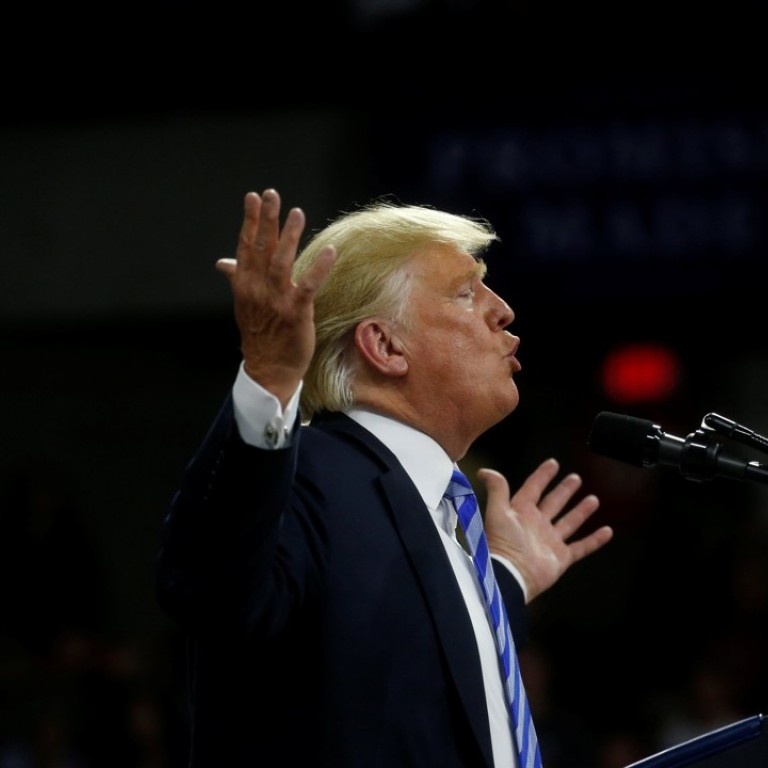
Trump ignores legal troubles at rally, says China’s market is ‘way down’ as trade war heats up
Washington and Beijing have been locked in escalating rounds of tit-for-tat tariffs
US President Donald Trump said China’s economy is no longer on a swift pace to be larger than the United States, a comment likely to stoke concerns in Beijing that his administration wants to contain its rise.
Speaking at a rally in West Virginia on Tuesday night, Trump noted that China’s market was “way down” even while saying he has “tremendous respect” for the country.
Trump addressed the crowd in a state where he remains deeply popular, touching on his favourite themes while ignoring the legal troubles swirling around his presidency hours after his former campaign chairman and former personal lawyer were convicted of federal crimes.
Is Donald Trump doomed, after the most disastrous day of his presidency?
Trump said that various trade talks would take time, a remark that dampens hopes for a breakthrough as low-level negotiations between the US and China resume this week in Washington.
“When I came we were heading in a certain direction that was going to allow China to be bigger than us in a very short period of time,” Trump said.
“That’s not going to happen any more.”
“I want to be their friend. But we had to do things that we had to do.”
Chinese officials have become increasingly suspicious that Trump’s moves to impose tariffs are part of a wider strategy to hinder the development of the world’s second-biggest economy.
The US has imposed tariffs on US$34 billion of goods already, and another US$216 billion are in the pipeline.
While Beijing has been willing to cut a deal on narrowing its roughly US$375 billion trade surplus with the US, President Xi Jinping’s administration has resisted other Trump demands.
Those include an end to subsidies for strategic industries, a stop to forced technology transfer and more competition for state-owned enterprises – all measures that officials fear may undermine the Communist Party’s legitimacy to rule.
China’s roughly US$12 trillion economy has steadily narrowed the gap with the US which is about US$19 trillion.
China’s gross domestic product is forecast to expand 6.6 per cent this year, according to estimates compiled by Bloomberg, which would be the slowest pace since 1990. The US economy is forecast to expand 2.9 per cent.
In an interview with Reuters on Monday, Trump said hat he had “no time frame” for ending the trade dispute with China.
“I’m like them; I have a long horizon,” he added.
The talks this week come as new US tariffs on US$16 billion of Chinese goods take effect at 12:01am (0401 GMT) on Thursday, along with retaliatory tariffs from Beijing on an equal amount of US goods.
The US Trade Representative’s Office also is holding hearings this week on proposals for tariffs on a further US$200 billion of Chinese goods that will start to directly hit consumer products.
Additional reporting by The Washington Post and Reuters

